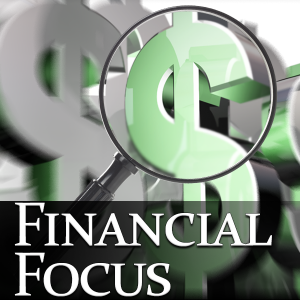 Submitted by Edward Jones Financial Advisor Kirk Doyle
Submitted by Edward Jones Financial Advisor Kirk Doyle
It’s election season again. Over the next several months, you’re bound to hear an array of promises from the candidates and speculation from the pundits on what those promises, if enacted, could mean for the country. But how might these possible outcomes affect your financial future?
When considering this question, keep these points in mind:
Campaign promises aren’t always kept. Presidential candidates often proclaim that they intend to institute major changes in tax or spending policies, or both. But the reality is that our political system is generally resistant to major changes, which may be good for investors, because the financial markets dislike the uncertainties accompanying these types of changes.
Economic progress doesn’t always depend on Washington. Even when political leaders do succeed in enacting laws and regulations, the results can be unpredictable. Major economic indicators, such as jobs, interest rates and inflation, can move in unexpected directions.
Financial markets can do well no matter who’s in charge. Since 1970, the stock market, as measured by the S&P 500, has returned, on average, more than 10% annually. And that’s under every political combination — Democratic president with Democratic Congress, Republican president with Republican Congress, or one party holding the presidency with the other holding Congress.
The fact is that many factors outside political leaders’ control drive financial markets. To cite just one example, it’s the Federal Reserve, not the president or Congress, that sets interest rates, and the Fed itself may do so in response to unforeseen or unexpected economic events, such as the supply chain backlogs brought on, in part, by the COVID-19 pandemic. And other events, including natural disasters, global political or military conflicts, oil production, and so on, also will have an impact on our economy and financial markets.
Therefore, instead of making investment decisions based on the political scene, “vote” for some tried-and-true strategies. For starters, try to build a diversified portfolio containing U.S. and international stocks or stock-based mutual funds, corporate bonds, U.S. Treasury securities, certificates of deposit (CDs) and other investments. While diversification can’t protect against all losses or guarantee profits, it can help shield you from market volatility that might primarily affect one asset class. To put it simply, if you only owned stocks and the market dropped, your portfolio could decline more than if you also owned bonds, which frequently move in a different direction from stocks.
Here’s another suggestion: Invest for the long term. The financial markets will always experience short-term downturns, but you don’t want to overreact by selling investments to cut losses. After all, if you’re not invested in the market, you’ll miss out on the early stages of the next rally, which is often when the biggest gains are made. Ultimately, the most successful investors are the ones who hold quality investments for decades as part of a strategy that’s appropriate for their risk tolerance, time horizon and personal goals.
Elections can give political leaders a lot of influence — but when it comes to making the right investment choices, you’ve got the power.
This article was written by Edward Jones for use by your local Edward Jones Financial Advisor.
Edward Jones, Member SIPC
Kirk E. Doyle, AAMS®






